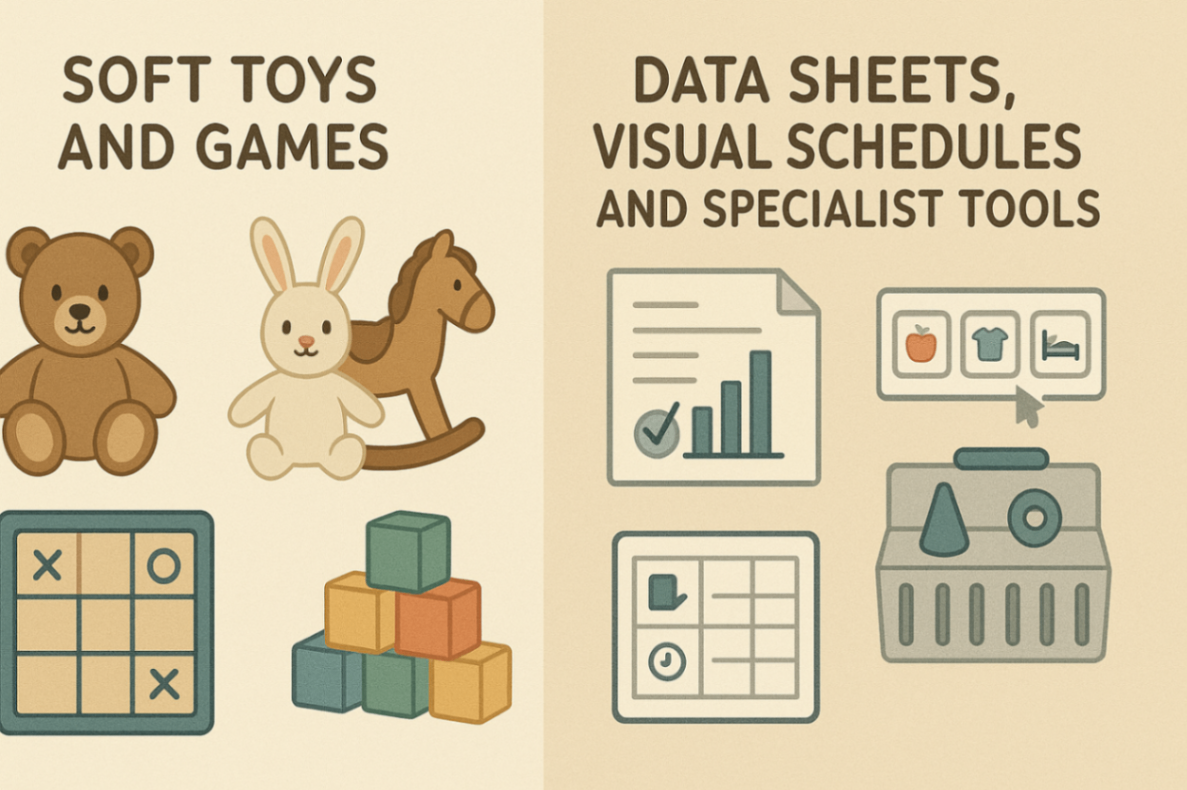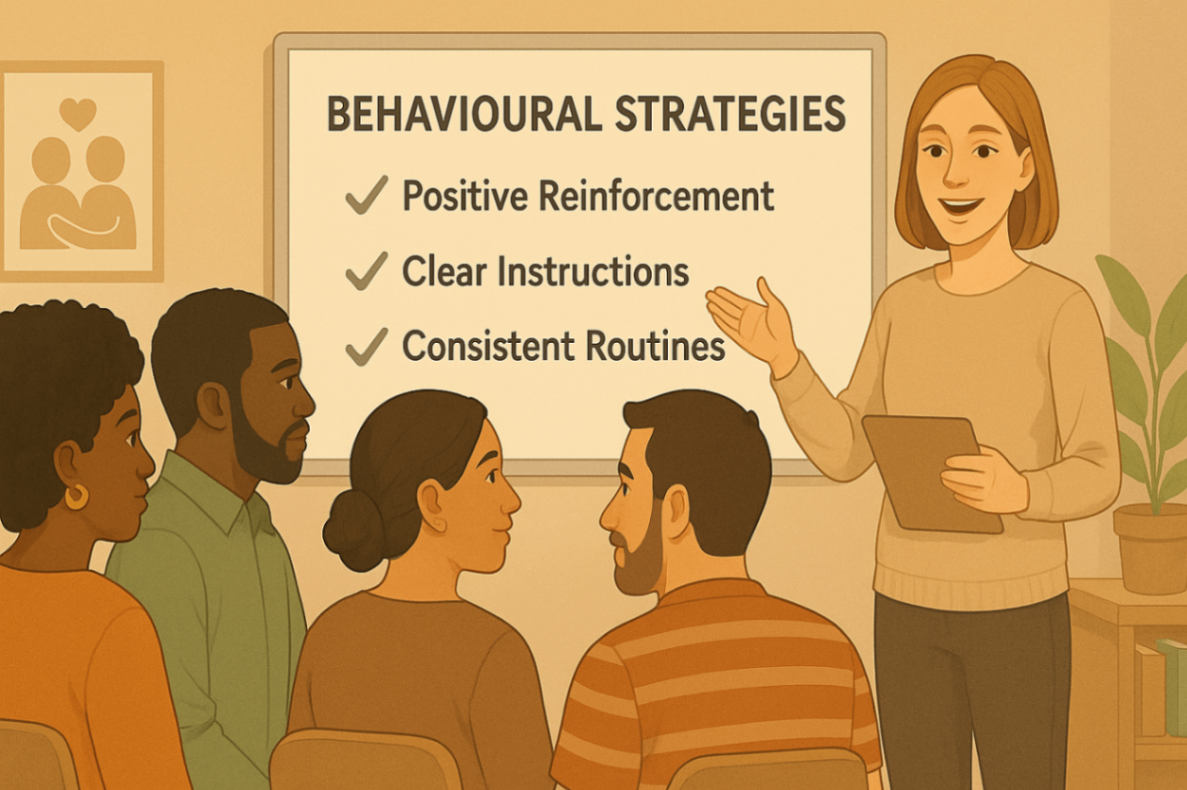
the role of functional behaviour assessments in pbs
19 June, 2025

Key Highlights
-
A functional behaviour assessment (FBA) is a systematic process to understand challenging behaviours and their functions.
-
FBAs utilise direct observation, interviews, and data collection methods to uncover behaviour triggers and patterns.
-
Understanding antecedents, behaviours, and consequences during an FBA helps shape effective behaviour intervention strategies.
-
Educators, school staff, and caregivers work collaboratively to address challenging behaviours through FBAs.
-
FBAs are integral in developing Behaviour Intervention Plans (BIPs) and Positive Behaviour Support (PBS) systems.
-
The National Disability Insurance Scheme (NDIS) in Australia provides FBAs for individuals when deemed necessary.
Introduction
Challenging behaviours can make things hard for people, their families, and the people close to them. An FBA, or functional behaviour assessment, helps to find out why these behaviours happen. This lets caregivers or teachers know what steps to take to make things better. If you are a caregiver, using an FBA is a good way to learn the reason behind someone's actions. Let's look at this important tool and why it matters for helping people. With an FBA, you can give support that fits, leading to better results for everyone who is part of the process.
Understanding Functional Behaviour Assessments (FBAs)
 To help with challenging behaviours, Functional Behaviour Assessments (FBAs) be very important. They use careful data collection and direct observation. FBAs show what happens right before and right after a student’s behaviour. With this, school staff and caregivers can see what makes the student act that way. When they look at this data, teachers can make Behaviour Intervention Plans (BIPs) just for that student. This caring way helps the student, and it also lets families and school staff work together. The team can better support the student and see good results in how they act.
To help with challenging behaviours, Functional Behaviour Assessments (FBAs) be very important. They use careful data collection and direct observation. FBAs show what happens right before and right after a student’s behaviour. With this, school staff and caregivers can see what makes the student act that way. When they look at this data, teachers can make Behaviour Intervention Plans (BIPs) just for that student. This caring way helps the student, and it also lets families and school staff work together. The team can better support the student and see good results in how they act.
What Is a Functional Behaviour Assessment?
At its heart, a functional behaviour assessment (FBA) is a way to get a better look at challenging behaviours. It does not just focus on the actions you can see. Instead, FBAs try to find out the function. This means they look for the reason behind the behaviour. For example, when a child bites, is he trying to get attention, or is there too much asked from him? The goal is to understand why.
The FBA process uses direct observation, interviews, and data collection. This helps make a clear picture of the behaviours and what happens around them. People work together to notice factors like antecedents, or what comes before the behaviour, and what comes after, known as consequences.
FBAs will not be quick fixes. They need time and a full review to make a plan that works in the long run. If done well, an FBA can find the root cause. It helps give the person new skills, makes the setting better, and helps caregivers teach better ways for positive behaviour.
Key Components of an FBA
Functional behaviour assessments have different parts that help you get a clear picture of a person's behaviour. These parts include:
-
Data Collection: You get details about the behaviour by watching it happen, using direct observation and recording ABCs (what happened before, the behaviour itself, and what happened after) along with screening tools.
-
Antecedent Identification: You look for what sets off the behaviour or what was happening right before. This helps you spot patterns and see why the behaviour might start.
-
Hypothesis Development: You use the information you collected to guess why the behaviour is happening or what the person gets from it.
-
Collaboration: School staff, caregivers, and other professionals work together. They share what they know and help come up with good plans.
By following this process, you can define challenging behaviojrs and get to know all about them. It helps you make better plans to manage and change these behaviojrs, which leads to more use of Positive Behaviojr Support strategies.
The Connection Between FBAs and Positive Behaviour Support (PBS)
 A strong link is there between Functional Behaviour Assessments (FBAs) and Positive Behaviour Support (PBS). These both help us take early steps to deal with challenging behaviojrs. In schools, staff use FBAs to get the key data for this work. They watch students closely and spot the things happening before the behaviour starts. This direct observation helps to see patterns that lead some students to act out. The team then uses what they see and learn to make clear Behaviour Intervention Plans (BIPs), which meet each student’s unique needs.
A strong link is there between Functional Behaviour Assessments (FBAs) and Positive Behaviour Support (PBS). These both help us take early steps to deal with challenging behaviojrs. In schools, staff use FBAs to get the key data for this work. They watch students closely and spot the things happening before the behaviour starts. This direct observation helps to see patterns that lead some students to act out. The team then uses what they see and learn to make clear Behaviour Intervention Plans (BIPs), which meet each student’s unique needs.
Caregivers work with school staff in this process. By working together, they build ways to help students do better. Using PBS, they create places that help kids grow and behave in a positive way. They also show how emotional and social well-being matter. The PBS approach reminds us that these positive changes don’t just happen at school, but also with help from all the people around the student.
How FBAs Inform PBS Planning
FBAs play a key role in helping create Positive Behaviour Support (PBS) strategies. They start by looking at what happens before a behaviour, the behaviour itself, and what happens after. This information gives a strong base for making targeted changes. With the data from the FBA, Behaviour Intervention Plans (BIPs) can be made. These plans look to teach replacement skills and change the environment to reduce triggers.
For example, if a student shows certain behaviour to avoid school work, the FBA can find out that they are trying to escape the task. PBS planning can then bring in other ways the student can ask for a break or get help finishing work. This helps lower the chances that the student will try to avoid work.
When behaviour goals are set to match both the student’s needs and their environment, FBAs make sure PBS plans work well and keep working over time. This process helps educators, school staff, and caregivers work together in a kind way to bring positive change.
Benefits of Using FBAs Within PBS
FBAs have many benefits when used in Positive Behaviour Support systems. They help create plans that fit each person and show better results. Here are some important ways FBAs can help:
-
Targeted Strategies: FBAs use data collection and studies of behaviour. This gives clear ideas for what will work best when making plans.
-
Empowered Caregivers: Caregivers, like parents and educators, get tools and information they need. This helps them make smart choices.
-
Enhanced Collaboration: School staff, caregivers, and behaviour specialists work as one team. They solve behaviour problems better by working together.
-
Focus on Positive Reinforcement: With PBS, people learn new skills that match why they act a certain way. Good behaviour is encouraged.
-
Long-Term Impact: School staff and others keep checking how things are going. Plans can change so that they fit new needs. This leads to good changes that last.
These benefits help people reach their full potential. FBAs make it easier for everyone to grow and feel included.
When Are FBAs Needed Under the NDIS in Australia?
In Australia, under the National Disability Insurance Scheme (NDIS), FBAs are done when there are behaviours that get in the way of everyday life or learning. These assessments help people find out what is causing the problem and plan the right kind of support for them.
Usually, you need an FBA when someone’s challenging behaviours affect safety, how independent they can be, or how things work in the classroom. School staff, caregivers, and other professionals work together in the NDIS framework for this. They use their skills and collect data to make sure everyone gets a full, clear picture of what is going on. If a person is found eligible, these FBAs open up new ways for them to get support and move forward.
Eligibility and Triggers for Conducting an FBA
Eligibility to do a functional behaviour assessment (FBA) with the NDIS has some clear rules. An FBA should be done when there are challenging behaviours that happen a lot, are very strong, or get in the way at school.
|
Eligibility Criteria |
Details |
|---|---|
|
Behaviours that compromise safety |
Like if someone is aggressive or hurting themself |
|
Interference with learning |
When behaviours stop someone from making progress at school |
|
Daily functioning challenges |
This can mean pulling away emotionally or avoiding other people |
When any of these things happen, school staff and caregivers start the FBA process. They use direct observation and some tools to collect data. This helps them know if help is needed and what kind of support will work best.
What Parents Can Expect During the FBA Process
Parents and caregivers have a big role in the FBA process. First, the team will talk with you to clearly describe the challenging behaviour in ways that everyone can measure. The next step is to do careful data collection. The school staff work on this with you and use direct observation, interviews, and other ways to find out more. They want to know the events and things (called antecedents) that happen before and after the behaviour.
School staff and other key people talk with you and share ideas. What you notice at home matters just as much as what they see at school. All this helps the team make a BIP just for your child. Some local services, like Everyday Independence or APSuccess in Liverpool, also involve families closely in this step—ensuring that Behaviour Support Plans reflect both school and home settings.
Keep in mind, this is a long process, not a quick fix. Good communication, tracking changes, and making updates help the plan work well and support your child’s needs in the best way. This will help your child see positive changes over time.
Functional Behaviour Assessments at daar Liverpool
At DAAR Liverpool, our Functional Behaviour Assessments (FBAs) are built on collaboration between our experienced practitioners, families, school staff, and other support networks. We combine clinical expertise with real-world insights to identify the root causes of challenging behaviours — and design effective plans that work in everyday life.
Our team uses structured data collection, direct observations, and personalised interviews to develop Behaviour Intervention Plans that are fully aligned with Positive Behaviour Support (PBS) practices. These plans aim to reduce harmful behaviours while teaching positive replacement skills that support long-term progress and emotional wellbeing.
Whether you’re navigating NDIS or seeking practical strategies to improve daily life, our Liverpool-based practitioners deliver tailored support that leads to real outcomes — for children, families, and the wider community.
Ready to take the first step? Book a consultation now and discover how a targeted Functional Behaviour Assessment can unlock better support for your child.
Conclusion
In short, Functional Behaviour Assessments (FBA) are very important in planning Positive Behaviour Support (PBS), especially when working with the NDIS. To really get the most from FBA, you need to know what it is, what its main parts are, and how it can help. This can make a big difference for parents and caregivers who support people with lots of different needs. The FBA process might look hard at first, but it gives people clear answers that help build the right ways to improve behaviour and make life better. If you are on this journey, you can reach out to our team at daar Liverpool. We offer support that fits your child’s needs. Your child’s progress often starts when you understand their behaviour. We will be there to help you at every step.
.svg)

















